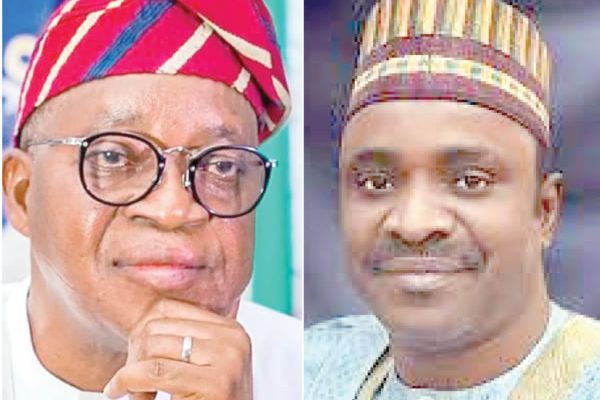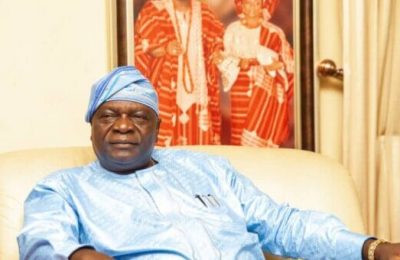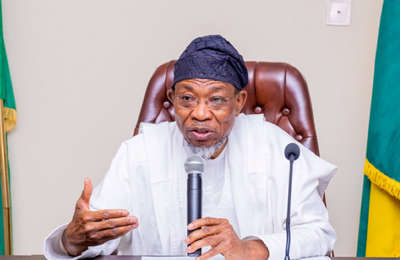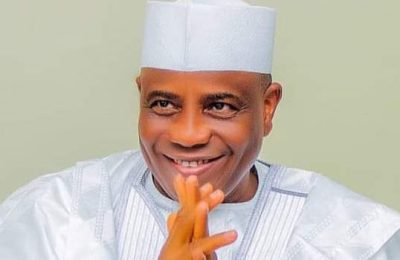The Nigerian maritime and rail sector witnessed some developmental strides in 2023, with innovations that improve the or workability raising optimism of a better future for both writes TOLA ADENUBI. Excerpts:
LEKKI PORT EMERGENCE
The year began on a high with the commissioning of the $1.5bn Lekki Deep seaport by former President, Muhammadu Buhari on January 2023. The new port, Nigeria’s first automated port, was expected to wrest lost cargoes from rival neighboring ports of Accra, Lome and Abidjan.

The new port which can handle very large vessels, commenced commercial operations by the beginning of the second quarter of 2023, and sent shockwaves through the nation’s maritime space, forcing operators of river ports like Apapa and Tin-Can to also announce arrival of very large vessels in their port terminals.
The entrant of Lekki Port into Nigeria’s maritime space has had positive impact on the nations port operations because very large vessels that previously wouldn’t want to come to Apapa and Tin-Can Ports, now come to these ports following improvement in vessel handling capacities by the various port operators of these river ports due to the competition posed by the presence of Lekki Port.
“This river ports had to up their game not to get frozen out of business by Lekki Port which could handle very large vessels. Thus, it became a tradition to see Apapa and Tin-Can port operators celebrating the arrival of very large vessels in their port terminals. This wasn’t the situation before the emergence of Lekki Port. It is just a case of operators trying to remain competitive in business,” a clearing agent, Basil Okpara told the Nigerian Tribune.

IMPROVED MARITIME SECURITY
Over the years, the spate of piracy attacks in Nigerian waters has been on the decline following efforts by the Nigerian Maritime Administration and Safety Agency (NIMASA) in collaboration with the Nigerian Navy to ensure adequate policing of the nation’s maritime domain.
Speaking in April 2023 when he received the Norwegian Minister of Foreign Affairs, Ms Huitfeldt Anniken in his office in Lagos, NIMASA DG, Dr. Bashir Jamoh revealed that, “Nigeria recorded 82 cases of sea piracy in its waters in 2018, but that dropped to 61 in 2019 and down to 34 cases in 2021.
By 2022, we recorded zero piracy attack and maintained that record up till the first quarter of 2023.”
With the zero-record feat which started in 2022, the International Bargaining Forum (IBF) in February 2023 removed Nigeria from the list of countries designated as risk maritime nations.
Even though the International Maritime Bureau (IMB) has raised the alarm over the likely resurgence of piracy in the Gulf of Guinea waters, NIMASA in collaboration with the Nigerian Navy has been able to keep the threat level within check all through 2023, leading to further calls for the removal of War Risk surcharges on Nigerian bound cargoes.
FAILED CVFF DISBURSEMENT
The year also began on a high for indigenous ship owners seeking the disbursement of the over $700m Cabotage Vessel Financing Fund (CVFF).
Recall that the CVFF was established alongside the Nigerian Coastal and Inland Shipping (Cabotage) Act of 2003, to empower indigenous ship-owners to take control of the nation’s coastal and inland shipping business, otherwise known as the Cabotage trade.
Towards the tail end of the administration of Muhamadu Buhari presidency, five Primary Lending Institutions (PLI’s), Zenith, Polaris, United Bank of Africa (UBA) Jaiz and Union Bank were all appointed to handle modalities for the disbursement of the CVFF to indigenous shipowners.
Briefing journalists after a meeting at NIMASA headquarters in January, the Director General of NIMASA, Dr Bashir Jamoh stated that the modalities to be released by the five banks include the interest rate, tenure, collateral and requirements needed to access the fund.
However, the end of President Buhari’s tenure as Commander-In-Chief mid-2023 and the emergence of President Bola Ahmed Tinubu’s era seems to have slowed down the disbursement of the CVFF, as the fund has remained undisbursed all through 2023 and the country has continued to incur losses due to a lack of capacity on the part of the indigenous ship-owners.
COLLAPSING PORTS
All through 2023, the issue of collapsing quays and berths at many Nigerian ports made the headlines as the Managing Director of the Nigerian Ports Authority (NPA), Mr. Mohammed Bello Koko said that the rehabilitation of Apapa and Tin-Can Island Ports in Lagos, including Onne port in Rivers State and Calabar port in Cross River State will gulp $800 million.
“Palliative and remedial works are no more effective. These ports need total rehabilitation. The rehabilitation would help in achieving the digitalization of all the four ports in Nigeria.
“The rehabilitation of Apapa, Tin Can Island Port in Lagos, Onne and Calabar ports in the Eastern port will cost $800million. The $800million will either come in as a loan or NPA will fund the rehabilitation, which will reduce its contribution to the CRF,” the NPA MD had told newsmen in February 2023.
With the creation of a Ministry of Marine & Blue Economy by President Bola Tinubu, expectations are high that the approval for the rehabilitation of Nigeria’s major ports will soon commence in the new year.
RAIL SECTOR
The Nigeria rail sector staggered into 2023 with many passengers stranded due to the Naira scarcity hassles that paralysed business activities in the first quarter of the year. The rejection of old Naira notes by staff of the Nigerian Railway Corporation (NRC) left many passengers fuming as the new notes remained elusive.
Barely has the dust raised by the Naira scarcity settled down when one of the Corporations standard gauge trains, the Warri-Itakpe train derailed at kilometre 30 of Ajaokuta-Itakpe section of the track in January 2023, leading to the suspension of the Warri-Itakpe train services. The Warri-Itakpe train was not restored until April 2023 after the NRC had ensured that all passengers onboard the ill-fated train had been accounted for.
The commencement of Lagos to Ibadan cargo evacuation by rail in September was however a turning point for railway development in 2023. For years, a lack of efficient movement of cargoes by rail had meant that the port terminals have had to battle congestion due to a single mode of cargo evacuation, which is road haulage.
The absence of an intermodal means of cargo evacuation left many Nigerian roads dilapidated and contributed majorly to the traffic gridlock that rocked the Lagos ports access roads in past years.
Inaugurating the first trip in September, the Honourable Minister of Transportation, Saidu Alkali said that the container freight movement will be done on one of the three standard gauge lines for now while efforts are on to remove the Customs scanner building impeding the other two lines.
According to the Minister of Transportation, “You are all welcomed to the commissioning of the inaugural movement of containers from Apapa Port to Ibadan.
“We will be doing three trips in a day. If you multiply three trips by 30 days, that will give you 90 trips in a month.
“With movement of containers from Apapa to Ibadan, we expect the Apapa Port to be decongested and our roads to be free of container carrying trucks.”
Its been four months since the NRC launched the Lagos cargo train, issues outside train operations like multiple handling charges, availability of cargoes has meant that the 90 monthly trips spelt out by the Honourable Minister of Transportation has remained elusive.







